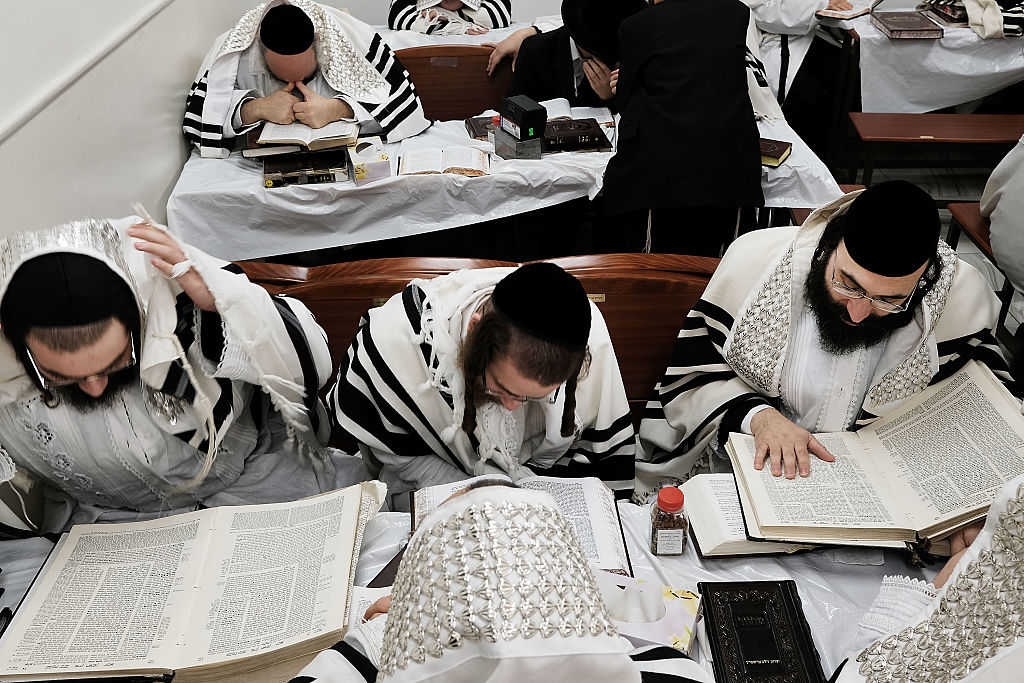The Jewish High Holiday Season is upon us.
Last week, the season started with the Jewish New Year, Rosh Hashanah.
Jews spend the day praying in synagogue, where the sound of the ram’s horn (the shofar) is heard. The sound of the shofar on Rosh Hashanah is a heavenly call to wake us up to our responsibilities to God, to ourselves and to our fellow Jew. The day of atonement, Yom Kippur, follows just 10 days after Rosh Hashanah. Chabad, a Jewish outreach organization, explains “The season of the High Holidays is an epic journey for the soul, and Rosh Hashanah is where it all begins.”
There are fun aspects of the day non-Jews can adopt, most notably a few menu items. But it’s not just about some tasty food, but what that food symbolizes.
The theme is sweetness. We want to start off the New Year sweetly. We dip apples in honey and cook with other naturally sweet foods like pomegranate and dates.
Chabad goes on to explain, “Many people eat parts of the head of a fish or a ram, expressing the wish that ‘we be a head and not a tail.’ In many communities, there are additional traditional foods eaten, each symbolizing a wish for the coming year. Many eat pomegranates, giving voice to a wish that ‘our merits be many like the [seeds of the] pomegranate.’ Another common food is tzimmes, a sweet, carrot-based dish eaten because of its Yiddish name, merren, which means both “carrot” and “increase,” symbolizing a wish for a year of abundance.”
Yom Kippur is marked in a very different way with a total abstention from all worldly pleasures. No water, no food, no television or other entertainment. We are instructed to spend the day in solemn prayer for forgiveness from God and our fellow man. In Leviticus it is described as “For on this day He will forgive you, to purify you, that you be cleansed from all your sins before G‑d.”
Who would want to willingly adopt a day of fasting? Most wouldn’t, but there is value in seeing how these practices may enrich one’s life, as I wrote here recently about the Jewish Sabbath, Shabbat. There is also something meaningful about having a season of the year devoted to resetting one’s religious observance and moral compass. During the High Holidays, Jews spend their time reflecting on past behavior, and apologizing collectively as a people and individually, both to God and their fellow man.
The season revolves around repentance; seeking it and granting it. In the 10-day span between Rosh Hashanah and Yom Kippur, Jews apologize for any and all transgressions and, to the best of their ability, grant absolution for those who seek their forgiveness.
This year the holidays come amid an incredible amount of social, cultural and political turmoil in the United States. Hyperbolic attacks on fellow Americans, friends, neighbors and coworkers are now the norm. There is no escape from the angry, partisan nature of our political climate. Just this past weekend, even watching Sunday football became fraught. There is literally no escape, and the rhetoric is accelerating at an alarming pace. We need a pause button, and for many Jews, the High Holidays serve as just that.
Wouldn’t it be nice if everyone, not just Jews, had a holiday that required us to turn all of our phones and televisions off, sit at a table of delicious sweet food, and apologize to each other for the week and a half thereafter?


